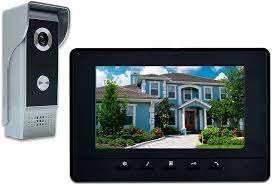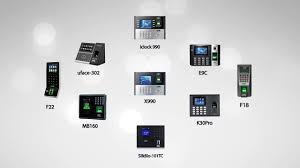CCTV Camera Without WiFi: A Reliable Security Solution
In an era where everything is connected wirelessly, CCTV cameras without WiFi are still a viable and reliable security solution for many applications. While WiFi-enabled cameras offer convenience and flexibility, there are several reasons why opting for a CCTV camera without WiFi may be the right choice for you.
Benefits of CCTV Cameras Without WiFi:
- Enhanced Security: CCTV cameras without WiFi are less susceptible to hacking or interference, providing a more secure surveillance system.
- Stable Connection: Wired CCTV cameras ensure a stable and consistent connection, eliminating the risk of signal dropouts or disruptions.
- No Network Dependency: With CCTV cameras that do not rely on WiFi, you do not need to worry about network outages affecting your surveillance capabilities.
- No Interference: Wireless signals can sometimes face interference from other devices or structures, whereas wired cameras offer a more reliable signal transmission.
- Better Performance in Remote Areas: In locations with poor or no WiFi coverage, CCTV cameras without WiFi can still function effectively through wired connections.
Applications of CCTV Cameras Without WiFi:
CCTV cameras without WiFi are commonly used in various settings where reliability and security are top priorities. Some common applications include:
- Commercial Buildings: Wired CCTV systems are popular in commercial buildings where security is crucial and uninterrupted surveillance is required.
- Gated Communities: Surveillance systems in gated communities often opt for wired cameras to ensure continuous monitoring of entry points.
- Traffic Monitoring: In traffic management systems, CCTV cameras without WiFi provide real-time monitoring without the risk of connectivity issues.
- Critical Infrastructure: Sensitive areas such as power plants or government facilities may prefer wired surveillance systems for heightened security measures.
In conclusion, while WiFi-enabled CCTV cameras offer convenience, flexibility, and remote access features, CCTV cameras without WiFi remain a reliable and secure option for many applications. Consider your specific security needs and the environment where the camera will be installed to determine whether a wired surveillance system is the right choice for you.
5 Advantages of Non-WiFi CCTV Cameras for Secure and Uninterrupted Surveillance
- Enhanced security with reduced risk of hacking or interference
- Stable and consistent connection without the possibility of signal dropouts
- No dependency on network availability for continuous surveillance
- Less susceptible to wireless signal interference from other devices or structures
- Effective performance in remote areas with limited or no WiFi coverage
Four Drawbacks of Non-WiFi CCTV Cameras: Accessibility, Installation, Flexibility, and Wiring Challenges
- Limited Remote Access
- Difficulty in Installation
- Limited Flexibility
- Potential Cable Management Issues
Enhanced security with reduced risk of hacking or interference
Opting for a CCTV camera without WiFi provides enhanced security by significantly reducing the risk of hacking or interference. Unlike WiFi-enabled cameras that can be vulnerable to cyber threats, wired CCTV systems offer a more secure surveillance solution with minimal chances of unauthorized access or signal disruptions. This added layer of protection ensures that your security footage remains confidential and tamper-proof, making it an ideal choice for safeguarding sensitive areas and valuable assets against potential security breaches.
Stable and consistent connection without the possibility of signal dropouts
One of the key advantages of CCTV cameras without WiFi is their ability to provide a stable and consistent connection without the possibility of signal dropouts. Unlike wireless cameras that may experience interference or signal disruptions, wired CCTV cameras ensure reliable surveillance capabilities by maintaining a continuous connection. This stability in connection is crucial for ensuring uninterrupted monitoring and recording of footage, making CCTV cameras without WiFi a dependable security solution for various applications.
No dependency on network availability for continuous surveillance
One significant advantage of CCTV cameras without WiFi is their independence from network availability for continuous surveillance. Unlike WiFi-enabled cameras that rely on a stable network connection, CCTV cameras without WiFi ensure uninterrupted monitoring even in areas with poor or no network coverage. This feature guarantees consistent surveillance capabilities, making them ideal for critical security applications where reliable monitoring is essential regardless of network conditions.
Less susceptible to wireless signal interference from other devices or structures
One significant advantage of CCTV cameras without WiFi is their reduced susceptibility to wireless signal interference from other devices or structures. Unlike WiFi-enabled cameras that can experience disruptions due to conflicting signals or obstacles, wired CCTV cameras provide a more reliable and stable connection, ensuring uninterrupted surveillance capabilities. This feature makes CCTV cameras without WiFi an ideal choice for environments where signal interference is a concern, guaranteeing consistent and clear footage for enhanced security monitoring.
Effective performance in remote areas with limited or no WiFi coverage
CCTV cameras without WiFi offer effective performance in remote areas with limited or no WiFi coverage, making them ideal for installations where maintaining a reliable surveillance system is essential. In such environments, wired cameras ensure continuous monitoring and recording capabilities without being dependent on a stable WiFi connection. This advantage makes CCTV cameras without WiFi a practical choice for locations where maintaining security and surveillance operations is critical, regardless of the availability of wireless network coverage.
Limited Remote Access
CCTV cameras without WiFi pose a significant limitation in terms of remote access capabilities. Without WiFi connectivity, these cameras do not allow users to conveniently view live footage or access recordings from a remote location. This lack of remote access can be a drawback for individuals or businesses that require real-time monitoring or the ability to check surveillance footage while away from the premises. The absence of WiFi connectivity restricts the flexibility and convenience that wireless-enabled CCTV cameras provide in terms of remote surveillance and management, making it challenging to monitor security situations from a distance.
Difficulty in Installation
One significant drawback of CCTV cameras without WiFi is the difficulty in installation. Wired CCTV cameras necessitate more intricate installation procedures in comparison to their wireless counterparts, leading to higher installation costs and increased effort. The need for routing cables, drilling holes for wiring, and ensuring proper connectivity can make the installation process cumbersome and time-consuming. This complexity in setup may deter some users who prefer a more straightforward and hassle-free installation experience offered by WiFi-enabled cameras.
Limited Flexibility
Limited Flexibility is a notable drawback of CCTV cameras without WiFi connectivity. The placement of these cameras is constrained by the availability of wired connections, which can restrict the flexibility in positioning them effectively. Unlike WiFi-enabled cameras that offer more freedom in placement due to wireless connectivity, CCTV cameras without WiFi may require careful planning to ensure optimal coverage while being limited by the reach of wired connections. This limitation can be a challenge in scenarios where specific camera angles or locations are crucial for comprehensive surveillance coverage.
Potential Cable Management Issues
Wired CCTV systems, despite their reliability, come with the con of potential cable management issues. The cables associated with these systems need to be carefully organized and hidden to maintain a neat and tidy appearance, which can be a challenging task. Dealing with cable management not only adds complexity to the installation process but also poses aesthetic concerns, as visible cables may detract from the overall look of the surveillance setup. Proper planning and installation techniques are essential to address these cable management challenges effectively in wired CCTV systems.




